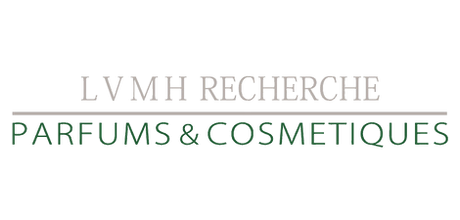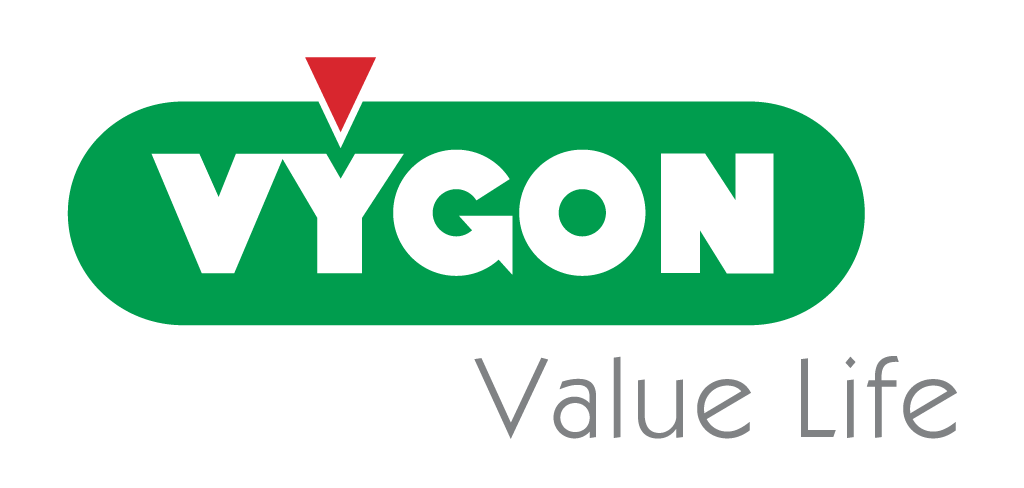KREATiS training courses
All KREATiS training courses are intensive and hands-on, with the Qualiopy French national accreditation and recognised international quality standard. The courses can be provided in English or in French.
Become a computational specialist
Based on your needs
Company specific issues can be included in training. We can integrate your case studies into a tailor-made session.
(only for intra-company training sessions for a minimum of 2 trainees. The price of these sessions needs to be determined on a case-by-case basis.)

Practise what you learn
You will get to use the software and will have ample time to work through examples. Only small groups (maximum 5 on-site and 3 on-line) are trained at a time in order to allow sufficient time for personal supervision of progress of each individual.
They trust us
OECD QSAR Toolbox
Introduction to replacing experimentation using read-across and QSAR modelling.
- Mastering the OECD QSAR Toolbox interface and functionalities.
- Be able to use the tool to obtain profiling and Read-Across/QSAR predictions for various physico-chemical, ecotoxicological and human health endpoints.
- Assessing the reliability in predictions derived using the OECD QSAR Toolbox.
- Generating prediction reports for the read-across and QSAR results.
Prerequisites
For (eco)toxicologists and chemists, risk assessors, regulatory affairs consultants
Location
Courses held at the KREATiS offices, by videoconference or at your premises*.
*Travel expenses to be paid by the client.
Duration
1 to 2 days - Duration adapted to the profile and skill level of the client and the objectives to be achieved.
Price
1100€ net per participant and per day of training.
Your trainers

Dr Carole CHARMEAU
Managing Director and Expert Toxicologist
carole.charmeau@kreatis.eu

Dr Floriane LARRAS
In silico Consultant & Senior Ecotoxicologist
floriane.larras@kreatis.eu

Dr Gaspard LEVET
In silico Consultant & Organic Chemist
gaspard.levet@kreatis.eu

Dr Franklin BAUER
Model developer and Senior Biochemist
franklin.bauer@kreatis.eu
Your training program
1. Basics
- Introduction to OECD QSAR Toolbox
- Overview of all the tool functionalities
2. Profiling and category formation
- Introduction to profiling and category formation approaches in the tool
3. Read-Across and QSAR predictions
- Physico-chemical endpoints
- Ecotoxicological and environmental endpoints
- Human health endpoints
- Training participants can choose the endpoints and the chemical structures to be used as case studies.
4. Read-Across/QSAR predictions reports
- Generation of prediction reports which could be used for regulatory purposes

The content of the training and the teaching methods are adapted to the profile and needs of the client.
Download ToolboxTeaching aids:
- Digital and paper presentation material
- Free software to download and associated case studies
Evaluation methods:
- Initial knowledge assessment grid
- Pre- and post-training assessment quizzes
in silico ecotoxicology
Introduction to ecotoxicological principles and methods for predicting hazard and fate without resorting to experimental studies.
- Mastering the principles of ecotoxicology which can be predicted by AI tools.
- Discover QSAR predictions and other in silico methods for obtaining critical physicochemical and ecotoxicological endpoints.
- Learn to assess the reliability of predictions derived using the in silico methods covered.
- Learn to generate regulatory formats for prediction reports for regulatory submission of the Read-Across and QSAR results.
Prerequisites
For ecotoxicologists, Regulatory affairs specialists, Environmental risk assessors, Product stewards, REACH consultants
Location
Courses held at the KREATiS offices, by videoconference or at your premises*.
*Travel expenses to be paid by the client.
Duration
1 to 2 days - Duration adapted to the profile and skill level of the client and the objectives to be achieved.
Price
1100€ net per participant and per day of training.
Your trainers

Dr Paul Thomas
President, Model Developer and Expert Ecotoxicologist
paul.thomas@kreatis.eu

Dr Floriane LARRAS
In silico Consultant & Senior Ecotoxicologist
floriane.larras@kreatis.eu
Your training program
1. Basics
- A background understanding to ecotoxicological hazard assessment and related physico-chemical properties
2. in silico tools and methods
- Introduction to QSARs and alternative (in silico) methods in ecotoxicology.
- Overview of in silico tools (EPIWIN/ECOSAR; iSafeRat, VEGA, OPERA, TEST…) and functionalities.
3. Read-Across and QSAR predictions
- Critical physico-chemical endpoints
- Ecotoxicological and environmental endpoints
- Ecotoxicological and environmental endpoints
- Training participants can choose the endpoints and the chemical structures to be used as case studies.
4. Read-Across/QSAR predictions reports
- Generation of prediction reports which could be used for regulatory purposes.
The content of the training and the teaching methods are adapted to the profile and needs of the client.
Teaching aids:
- Digital and paper presentation material
- Free software to download and associated case studies
Evaluation methods:
- Initial knowledge assessment grid
- Pre- and post-training assessment quizzes
in silico toxicology
Introduction to toxicological principal and methods for predicting human health effets without resorting to experimental studies.
- Mastering the principles of toxicology which can be predicted by in silico tools.
- Discover QSAR predictions and other in silico methods for obtaining critical physicochemical and toxicological endpoints.
- Learn to assess the reliability of predictions derived using the in silico methods covered.
- Learn to generate regulatory formats for prediction reports for regulatory submission of the read-across and QSAR results.
Prerequisites
Toxicologists, Regulatory Affairs Specialists, Risk Assessors, Product Stewards, REACH Consultants
Location
Courses held at the KREATiS offices, by videoconference or at your premises*.
*Travel expenses to be paid by the client.
Duration
1 to 2 days - Duration adapted to the profile and skill level of the client and the objectives to be achieved.
Price
1100€ net per participant and per day of training.
Your trainers

Dr Carole CHARMEAU
Managing Director and Expert Toxicologist
carole.charmeau@kreatis.eu
Your training program
1. Basics
- A background understanding to toxicological human health effects and related physico-chemical properties
2. in silico tools and methods
- Introduction to QSARs and other alternative in silico methods in toxicology
- Overview of in silico tools (QSAR toolbox, iSafeRat, VEGA, OPERA, TEST, Danish QSAR Database…) and functionalities
3. in silico profiling for Toxicological endpoints
- Skin Sensitization and Genotoxicity
- Understanding in silico predictions (alert interpretation)
- Where to find information to be able to asses prediction reliability
- Training participants can choose the endpoints and the chemical structures to be used as case studies.
4. in silico prediction reports
- Understanding in silico prediction report formats and their validation (QPRF and QMRF)
The content of the training and the teaching methods are adapted to the profile and needs of the client.
Teaching aids:
- Digital and paper presentation material
- Free software to download and associated case studies
Evaluation methods:
- Initial knowledge assessment grid
- Pre- and post-training assessment quizzes
Regulatory ecotoxicology
Introduction to ecotoxicological principles and methods for predicting hazard and fate using classical experimental studies.
- Mastering the principles of ecotoxicology.
- Learn how to apply the results to regulatory applications such as CLP/GHS, REACH risk assessment (PNECS)...
Prerequisites
Course for young ecotoxicologists and environmental risk assessors, Regulatory affairs specialists, product stewards, REACH consultants
Location
Courses held at the KREATiS offices, by videoconference or at your premises*.
*Travel expenses to be paid by the client.
Duration
1 to 2 days - Duration adapted to the profile and skill level of the client and the objectives to be achieved.
Price
1100€ net per participant and per day of training.
Your trainers

Dr Paul Thomas
President, Model Developer and Expert Ecotoxicologist
paul.thomas@kreatis.eu

Dr Floriane LARRAS
In silico Consultant & Senior Ecotoxicologist
floriane.larras@kreatis.eu
Your training program
1. Basics
- A background understanding to ecotoxicological hazard assessment and related physico-chemical properties.
2. Details on running studies
- In depth methods in ecotoxicology (Fate and Biodegradation, Bioconcentration and Ecotoxicity).
- What to look out for when evaluating study reports.
3. Ecotoxicological endpoints applied to Regulatory applications
- PBT assessments.
- CLP/GHS Ecotoxicological and environmental endpoints for single substances and mixtures
- Training participants can choose the endpoints and the chemical structures to be used as case studies.
- Use of existing endpoints for use in RAAF dossiers.
4. A brief introduction to alternatives (NAMs)
- Current in vitro NAMs in ecotoxicology
- Current in silico NAMs in ecotoxicology.
The content of the training and the teaching methods are adapted to the profile and needs of the client.
Teaching aids:
- Digital and paper presentation material
- Free software to download and associated case studies
Evaluation methods:
- Initial knowledge assessment grid
- Pre- and post-training assessment quizzes
Regulatory toxicology
[Introduction]
[DESCRIPTION]
Prerequisites
[Prerequisites]
Location
Courses held at the KREATiS offices, by videoconference or at your premises*.
*Travel expenses to be paid by the client.
Duration
1 to 2 days - Duration adapted to the profile and skill level of the client and the objectives to be achieved.
Price
1100€ net per participant and per day of training.
Your trainers

Dr Carole CHARMEAU
Managing Director and Expert Toxicologist
carole.charmeau@kreatis.eu
Your training program
1. Basics
[Basics]
2.
[2]
3.
[3]
4.
[4]
The content of the training and the teaching methods are adapted to the profile and needs of the client.
Teaching aids:
- Digital and paper presentation material
- Free software to download and associated case studies
Evaluation methods:
- Initial knowledge assessment grid
- Pre- and post-training assessment quizzes
Training application form
** Obligatory fields


